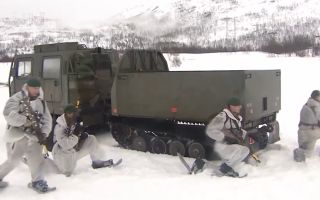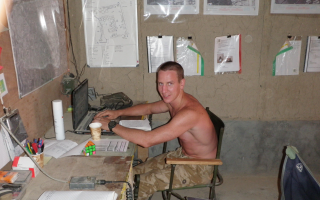Current arms treaties won't keep up with weapons development, experts warn
The war in Ukraine is likely to shape missile and drone development for decades, according to new research.
However, it also warns that current arms treaties will not be able to cope with a vast increase in these types of weapons.
The research paper by the International Institute for Strategic Studies (IISS) says the conflict will fuel demand for cruise and ballistic missiles as well as low-cost military-grade drones.
It says that nations that do not have them in depth, will be looking for ways to buy them on the world market or build their own.
Speaking to Forces News, Timothy Wright, Research Associate at the IISS, said that you may see, "less priority on focusing on the highest-end Gucci kit, trying to instead focus a bit more on what can we produce cheaply and at scale".
"Simple doesn't mean bad and simple doesn't mean that it's unsophisticated."
The paper says Ukraine will accelerate the development of more capable missiles, including multi-use munitions, that can be used against land and sea targets.
Russia is likely to step up its hypersonic missile program, possibly shelving some bigger strategic missile development.
Moscow could also help Iran develop its own supersonic missiles in return for greater access to Tehran's drone technology.
Russia has already used large numbers of Iranian Shahed Kamikaze drones to attack targets inside Ukraine.
The big challenge, says the paper, will be managing this explosion in missile and drone technology as while there are treaties to cover nuclear weapons and WMD (weapons of mass destruction), international agreements on limiting the use of cruise missiles or drones will be hard to achieve.
Mr Wright explained: "When these architectures were created, missiles were seen as being so inaccurate they could only really be there to deliver WMD.
"Now, of course, we're seeing an awful lot of countries, including even non-state actors, getting their hands on conventional armed cruise missiles, conventional ballistic missiles are becoming increasingly accurate and we're seeing more and more countries acquire them.
"The problem is how then to create new agreements and in a more stable and friendly environment that might be possible.
"Right now, that seems very, very difficult to do," he added.
The paper says closer military ties between Russia and Iran will be destabilising for other countries, particularly at a time when existing arms control agreements are fraying.
This all means that the task of managing who has this missile and drone tech is now doubly difficult since Russia's invasion.









